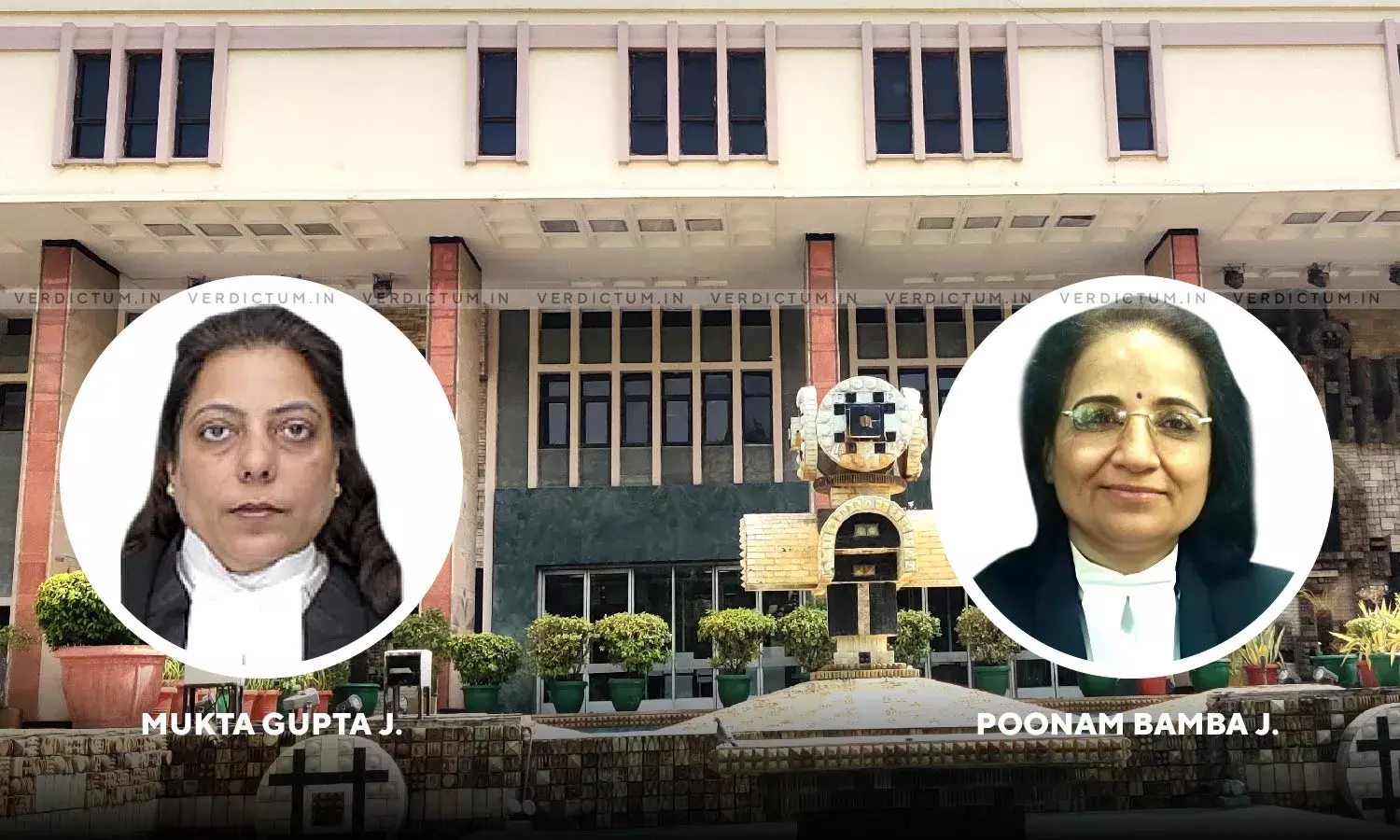Delhi HC Upholds Conviction For Rape Of A 6-Year-old Based On Her Sole Reliable Testimony

While upholding the impugned judgment of conviction and order on the sentence of the Trial Court, the Delhi High Court dismissed an appeal on finding cogent and convincing evidence of the victim, duly corroborated by her medical evidence and the statement of the victim's mother.
“Though the defense of the appellant was that he was falsely implicated owing to a parking dispute between him and victim's family, but there is no proof of the same. Even a suggestion in this regard was put to mother of victim (PW-12) but it was denied by her. Furthermore, there appears to be no cogent reason for the family to falsely implicate the appellant and letting the actual culprit go scot free”, a bench of Justice Mukta Gupta and Justice Poonam A. Bamba observed in the matter.
Advocate Mohd. Shamikh appeared for the appellant-convict, while APP Prithu Garg appeared for the State.
In the present case, the appellant was convicted for raping and kidnapping a 6 year-old minor girl, and thus was held liable of offences punishable under Section 6 of the Protection of Children from Sexual Offences Act, 2012 (POCSO Act) and Sections 363 & 323 of IPC. The Court further sentenced him to undergo imprisonment for life, along with a fine of ₹20,000/- for offence punishable under Section 6 of the POCSO Act, rigorous imprisonment for a period of seven years and fine of ₹10,000/- for offence punishable under Section 363 IPC and rigorous imprisonment for a period of one year and to pay fine of ₹1,000/- for offence punishable under Section 323 IPC, in default whereof, to undergo simple imprisonment for three months.
As per the case of the prosecution, on the evening of April 18, 2015 the victim went missing, however, when at about 12.30 AM, just when the parents of the victim were about to go to the police station, the appellant (chacha of victim's friend) came with the victim and handed her over to the mother.
Pursuant to which the victim was found unconscious and on examining, she (mother) found injuries and bite marks on the body of the victim as also bloodstains on victim‟s underwear. It was also observed that the victim was unable to properly stand on her own legs.
Accordingly, after completion of investigation, a charge-sheet was filed and the appellant was charged for offences punishable under Sections 363 IPC, 323/324, 376 IPC, and Section 6 POCSO Act.
The case of the prosecution was based on the testimony of the victim, corroborated by the mother.
In the arguments, the appellant vehemently contended his conviction and sentence as:
-he has clean antecedents and has not committed the crime and thus, should be acquitted;
-there is no evidence on record to suggest that the victim was conscious at the time when she made the statement to her mother, nor there is any fitness certificate on record to suggest the same;
-nothing incriminating has been mentioned in the MLC of the victim;
-the appellant found the victim at a redlight area, from where he took the victim in his lap and went to her house to hand her over to the mother.
However, in alternative, it was prayed that the sentence of imprisonment for life awarded to the appellant could be reduced to the minimum punishment under Section 6 of POCSO i.e. to 10 years, keeping in view that the appellant was 20 years old at the time of alleged incident and that he has clean antecedents.
The Court, therefore, after noting the relevant testimonies of the witnesses, the material placed on record, and the testimony of the victim relied on Rameshwar v. State of Rajasthan, 1951 SCC 1213 and Dattu Ramrao Sakhare v. State of Maharashtra, (1997) 5 SCC 341.
The bench was of the opinion that the conviction for offence punishable under Section 6 of the POCSO Act can be based on the sole testimony of the victim if the said victim is found to be a reliable witness.
"In the present case, the testimony of the victim is not only reliable and convincing but also finds corroboration from her MLC", the bench further added in the judgment.
Thus, the bench while dismissing the appeal, noted, "In view of the cogent and convincing evidence of the victim which is duly corroborated by her medical evidence and the statement of the mother of the victim, we find no error in the impugned judgment of conviction and order on sentence".
Cause Title: Shekhawat v. State [N.C.2023:DHC:3520-DB]
Click here to read/download the Judgment

